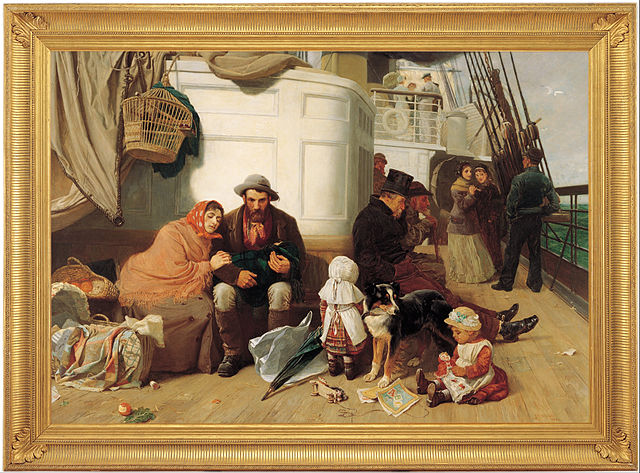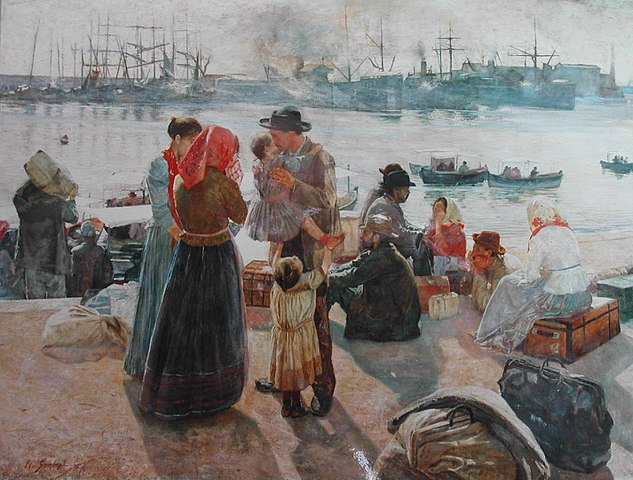
Thammasat University students are cordially invited to participate in a free Zoom conference on New Trends and Approaches to Migration Studies in East and Southeast Asia on Saturday, 14 August 2021 starting at 7am Bangkok time.
The event is presented by The University of Hong Kong (HKU).
The Thammasat University Library collection includes several books about different aspects of migration studies.
Students may register at this link:
https://hkuems1.hku.hk/hkuems/ec_regform.aspx?guest=Y&UEID=76858
For further information or with any questions, kindly write to this email address:
nwyhung@hku.hk
The event will feature many speakers whose books are represented in the TU Library collection, such as Professor Eric Fong of the Department of Sociology, HKU, who will discuss Income Differences between Local Born and Migrant Young Adults in Hong Kong: A Comparison of Baby Boomers and Millennials in collaboration with his colleague Dr Man Pui-Kwan of the Department of Sociology, HKU.
Also speaking will be Professor Elaine Lynn-Ee Ho of the Department of Geography, National University of Singapore and Professor Peggy Levitt of the Department of Sociology, Wellesley College and Weatherhead Center for International Affairs, Harvard University, the United States of America.
Migration studies is the academic study of human migration. Migration studies is an interdisciplinary field which draws on anthropology, prehistory, history, economics, law, sociology and postcolonial studies.
Among the issues it examines are forced migration, refugee studies, internal displacement, climate change and environmental factors, gender identity, humanitarianism, epidemiology, and assimilation.

Migration studies is considering a relatively new specialized field of study.
In Europe, the University of Copenhagen, Aalborg University, Malmö University, Utrecht University, Radboud University Nijmegen, Université de Liège, University of Côte d’Azur Linköping University, University of Neuchâtel, Universität Osnabrück, The University of Sussex, University of Riga, University of Deusto, The University of Oxford, and the University of Kent (Brussels School of International Studies) all offer graduate training in migration studies.
In the United States of America, The University of San Francisco, DePaul University, and City University of New York offer terminal Master’s degrees in migration studies.
In Asia, Tel Aviv University offers a terminal master’s degree in Global Migration & Policy. Central University of Gujarat offers a Master’s and PhD in Diaspora studies. In the Philippines, Miriam College offers an MA in migration studies. In Nepal, migration is included in the graduate programmes in population studies at Tribhuvan University.
At the University of Colombo, Sri Lanka, the graduate programs in demography give significant attention to the study of migration.
Among academic research publications offering articles on the subject is Comparative Migration Studies.
A recent issue presented data on Comparative perspectives on migration, diversities and the COVID-19 pandemic.
The abstract for one article from the issue follows:
Labour Migration
Migration and mobility of third-country national labour workers to and inside Europe during the Covid-19 pandemic – a legal analysis by Adolfo Sommarribas & Birte Nienaber
The article’s conclusions:
The Covid-19 crisis is not only a public health crisis but also an economic crisis that has not previously been seen in the history of Europe. The current economic situation is serious, as the crisis has wiped out 10 years of economic growth in less than 4 months, generating a serious recession due to the contraction of the economy, which will have a significant impact on unemployment. The crisis has shown not only that the European Union as well as the EU Member States did not have contingency plans to deal with a crisis of this nature and they were taken by surprise. Even though there could have been learning processes after the financial crisis or the closing of borders due to terrorism or the 2015 “migration crisis”, the EU countries were developing national strategies to deal with and to secure a third-country national workforce in their countries – especially in sectors of the labour market that were declared to be of systemic relevance.
The crisis not only has demonstrated that there has not been a uniform approach from the European Union and its Member States in the migration context but has also shown that the individual actions of Member States demonstrate the influence of national sovereignty. The benefit of a uniform approach will allow Member States to develop synergies and avoid duplication and manage migration in a rational way through the exchange of information and good practices. The challenge on the other hand, is the different level of economic development and the medical infrastructure to fight the virus in the Member States, which make difficult to implement homogenic solutions to deal with economic paralysis and unemployment.
The current situation has demonstrated that most EU Member States continue to depend on physical files in the migration management process in order to take decisions, which will subsequently generate a delay in decisions being taken. Member States have been implementing online solutions as a reaction to the crisis. However, in the medium term, EU Member States will have to provide for the implementation of an electronic migration management system which allows the customer to apply online and the responsible agent to have access to that electronic file online, allowing remote connection if necessary. This can be seen as an opportunity, as it allows the possibility of implementing a complete electronic migration management system, which will simplify the handling of applications and reduce the backlog in the immigration services whilst simultaneously keeping the staff and applicants out of danger.
During the lockdown, EU Member States have demonstrated flexibility, leniency and understanding with regard to the residence permits, temporary authorisations of stay and long-term/short-term visas, to prevent some third-country nationals from falling into irregular situations because of “force majeure”. Member States have implemented support measures to mitigate the negative effect of the pandemic with regard to enterprises and employees. These are general measures which also benefit third-country nationals. Third-country nationals who lost their employment have access to unemployment benefits just as nationals do.
Nevertheless, the national laws regulating the withdrawal of residence permits for loss of employment have not been amended, so third-country nationals who lose their jobs risk the possible loss of their residence permits and thus becoming subject to a return decision. It is clear that third-country nationals are highly vulnerable, as they represent a high proportion of the low-skilled workforce, which is hired on temporary contracts and in employment which is not teleworkable, and in consequence they are subject to loss of their employment if a shutdown of the firm happens. Most EU Member States have demonstrated leniency and flexibility in the withdrawal and renewal of residence permits if the third-country national can find new employment. However, it is clear that in a recession, finding new employment becomes a difficult issue and it is probable that due to the scarcity of available work, third-country nationals will be competing with EU citizens for the same positions, which will make their stay in the European Union more difficult… The crisis is not over and most of the issues that are analysed in this article may change in the next few months, depending on the development of the pandemic and the policies implemented by Member States.
Moreover, further research is needed from i.e. economic, psychological, social and political perspectives on what influences these measures have had on the third-country nationals themselves, on the labour markets and also on longer-term political and legal measures.

(All images courtesy of Wikimedia Commons)
